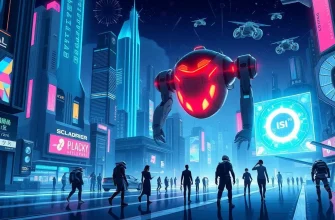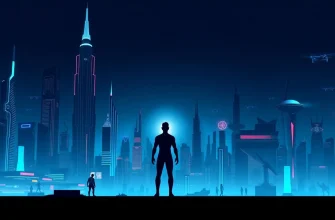Augmented reality (AR) has long fascinated filmmakers, offering a canvas to explore the intersection of technology, reality, and human experience. This curated list of 10 sci-fi films delves into the realm of AR, showcasing how it can transform our perception of reality, challenge our understanding of existence, and push the boundaries of storytelling. From thrilling adventures to thought-provoking narratives, these films provide a glimpse into potential futures where AR is not just a tool but an integral part of life.

The Matrix (1999)
Description: While primarily known for its virtual reality, the Matrix can be seen as an advanced form of AR where humans are plugged into a simulated reality that overlays their actual existence.
Fact: The film's concept of "jacking in" to the Matrix has become a cultural touchstone for discussions on reality and simulation.
 Watch Now
Watch Now 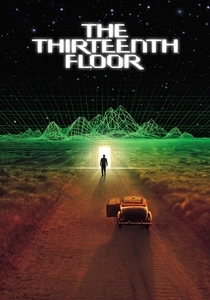
The Thirteenth Floor (1999)
Description: This film delves into a world where AR technology allows people to enter virtual realities indistinguishable from real life, raising questions about the nature of reality itself.
Fact: The film was one of the first to explore the concept of nested realities, predating similar themes in later movies like "Inception."
 Watch Now
Watch Now 
A Scanner Darkly (2006)
Description: Using rotoscoping, this film depicts a future where AR technology is used for surveillance and control, exploring themes of paranoia and identity in a dystopian society.
Fact: The film was adapted from Philip K. Dick's novel, known for its exploration of reality and perception, themes that resonate with AR concepts.
 Watch Now
Watch Now 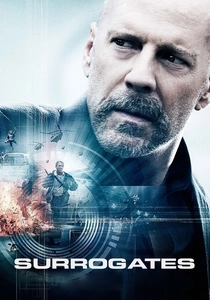
Surrogates (2009)
Description: Here, AR technology allows people to live through robotic surrogates, exploring themes of identity, privacy, and the impact of technology on human interaction.
Fact: The film was based on a graphic novel, and its AR concept was a precursor to discussions about remote work and virtual presence.
 Watch Now
Watch Now 
Gamer (2009)
Description: In this film, AR technology allows players to control real people in a game called "Slayers," exploring themes of control, freedom, and the ethics of AR.
Fact: The film features a mix of live-action and CGI to create its AR environments, showcasing the potential of AR in entertainment.
 Watch Now
Watch Now 
Tron: Legacy (2010)
Description: Although primarily a virtual reality film, the sequel introduces elements of AR through the Grid, where digital and physical realities intersect.
Fact: The film's visual effects were groundbreaking, using AR techniques to blend the real world with the digital world seamlessly.
 Watch Now
Watch Now 
Ready Player One (2018)
Description: In a dystopian future, people escape their harsh reality by entering the OASIS, a virtual reality universe where AR is used to enhance the experience. The film explores themes of escapism, identity, and the quest for control over one's digital life.
Fact: The film was directed by Steven Spielberg, who has a history of exploring futuristic themes. The OASIS was inspired by the novel's detailed descriptions, with AR elements enhancing the visual storytelling.
 Watch Now
Watch Now 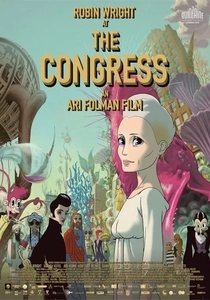
The Congress (2013)
Description: This film blends animation with live-action to explore a future where actors sell their digital likenesses for AR experiences, questioning the nature of performance and identity.
Fact: The film's unique visual style was achieved through a combination of rotoscoping and CGI, creating a surreal AR experience.
 Watch Now
Watch Now 
Strange Days (1995)
Description: Set in the near future, the film features a technology called "SQUID" that records and plays back experiences, essentially an early form of AR, allowing users to live through someone else's memories.
Fact: Kathryn Bigelow directed this film, which was ahead of its time in exploring virtual reality and AR concepts.
 30 Days Free
30 Days Free 
eXistenZ (1999)
Description: David Cronenberg's exploration of AR involves a virtual reality game that blurs the lines between the game world and reality, questioning the nature of existence and control.
Fact: The film's organic, bio-engineered game pods were a unique take on AR technology, reflecting Cronenberg's signature body horror themes.
 30 Days Free
30 Days Free 

